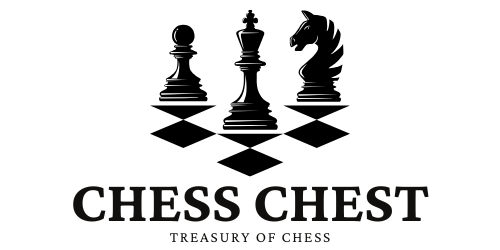In recent years, virtual coaches have become increasingly popular in the chess world. These digital tools, powered by artificial intelligence, offer players guidance, analysis, and structured training programs. But can a virtual coach truly improve your game, or are they just a novelty? In this article, we’ll explore the capabilities of virtual chess coaches, their benefits, and any limitations, helping you decide if a virtual coach is the right move for your chess journey.
1. Personalized Training Programs
One of the greatest strengths of virtual coaches is their ability to create personalized training plans based on a player’s strengths and weaknesses. Virtual coaches like those on Chess.com and Chessable analyze your games, identify areas for improvement, and recommend specific exercises to address those gaps.
- How It Works: Virtual coaches assess game data to identify patterns in your play, such as common mistakes in tactics or endgames. They then recommend lessons or practice exercises to target these areas.
- Benefits: Personalized training can significantly improve specific skills, allowing players to focus on areas they may not realize need improvement. This efficiency can lead to faster progress.
2. Real-Time Feedback and Analysis
Virtual coaches provide real-time feedback during games, highlighting mistakes, suggesting better moves, and offering explanations. This feature helps players understand not just what moves are optimal, but why they are effective.
- How It Works: Virtual coaches use integrated engines to evaluate each move and flag inaccuracies or missed opportunities. Some platforms, like Lichess and Fritz, offer blunder detection and provide alternative lines for better understanding.
- Benefits: Real-time analysis enhances learning by giving players immediate feedback, which helps solidify concepts and reinforces good decision-making. It also makes it easy to recognize recurring mistakes and avoid them in future games.
3. Flexibility and Accessibility
Virtual coaches are available anytime, offering flexibility that a human coach may not be able to provide. They allow players to train whenever they want, making it easier to fit chess improvement into a busy schedule.
- How It Works: Virtual coaches are available 24/7 on platforms like Chessable, Chess.com, and others, providing instant access to training material, lessons, and feedback.
- Benefits: This flexibility is ideal for players with unpredictable schedules or limited access to human coaching, making it easier to integrate chess training into daily life without the need for scheduled sessions.
4. Progress Tracking and Goal Setting
Many virtual coaches offer goal-setting and progress tracking, allowing players to see their improvement over time. Chess platforms often track metrics like accuracy, opening knowledge, and endgame skill, providing a tangible way to measure growth.
- How It Works: Virtual coaches track completed exercises, puzzle ratings, and performance metrics over time. Players can set specific goals and monitor their progress, motivating them to continue improving.
- Benefits: Goal setting and tracking help players stay motivated and focused on their development. It also provides insight into how their skills are evolving, reinforcing the effectiveness of their training efforts.
5. Limitations of Virtual Coaches
While virtual coaches offer many advantages, they do have limitations. AI-powered guidance is often less nuanced than advice from a human coach, especially when it comes to explaining complex strategies or adapting to a player’s unique learning style.
- Lack of Human Insight: Virtual coaches can only offer advice based on programmed algorithms and patterns, which may not cover every aspect of a player’s unique strengths or struggles.
- Limited Interactivity: While virtual coaches can provide feedback, they can’t answer questions or engage in discussions the way a human coach can. This can make it difficult for players to clarify concepts or seek guidance on specific issues.
Summary
Virtual coaches can indeed improve your game by providing personalized training, real-time feedback, and progress tracking, all with the flexibility of on-demand access. These tools are invaluable for reinforcing skills and practicing targeted areas of improvement. However, they may lack the depth and adaptability of a human coach, especially when it comes to understanding individual nuances and explaining complex strategies. For many players, a virtual coach serves as an excellent supplement to their training, offering consistent support and feedback that can make a tangible difference in their chess journey.




